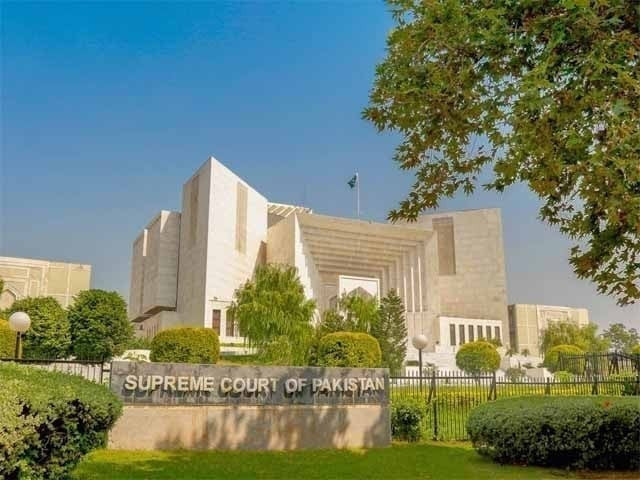Judge rebukes ex-CJ for shunning accountability
Justice Mandokhail says Saqib Nisar failed to fulfil obligation by not referring complaints to SJC

In his additional note to a recent judgement, a Supreme Court judge, Jamal Khan Mandokhail, has severely criticized a former chief justice of Pakistan, Mian Saqib Nisar.
Justice Mandokhail has noted that CJ Nisar failed to fulfil his constitution, moral and ethical obligation as the country’s top judge as he did not refer the misconduct complaints filed against him to the Supreme Judicial Council (SJC) during his term as the chief justice.
"[A] complaint was filed by private appellants against the former HCJ (Saqib Nisar), but he sat upon the same and did not refer the matter to the council [SJC} by recusing himself, rather held the Council hostage by not convening a meeting,” Justice Mandokhail stated in his 17-page additional note.
The additional note is part of the detailed judgement issued by a five-member bench that on February 21 ruled that the SCJ proceedings once initiated against a judge did not stop upon the retirement or resignation of the judge.
The five-member bench—including Justice Mandokhail—had issued this order while hearing an intra-court appeal filed by the government against a June 27, 2023 verdict of an SC division bench which had ruled that misconduct proceedings could not be initiated against judges who have retired or resigned.
In his additional note which was unveiled along with the detailed verdict on Friday, Justice Mandokhail noted that it was not only the former CJ’s constitutional obligation, but was also his moral and ethical responsibility to refer the matter to the council.
“[CJ Nisar should have] asked a judge of the Supreme Court who was next in seniority [to] him to become a member [of the council], with further request to the council to proceed against him accordingly."
According to Justice Mandokhail, Justice Nisar as the CJ was burdened with more responsibility to maintain a high moral and ethical standard by placing himself before the council for his accountability. “But he failed to do what was expected from him," he added.
He noted that failure on part of Justice Nisar to refer his matter to the council not only resulted in undermining the constitutional provisions, but also amounted to preventing the SJC from performing its constitutional function.
“It is a fact that during his tenure, under his chairmanship, the council conducted proceedings against some other judges, but withholding the complaint filed against him, is a violation of the principle of equality regarding accountability amongst the judges.”
He said it was equally the responsibility of other SJC members to have had inquired about pendency of references or complaints against judges of the Supreme Court or high courts
Read Justice Naeem takes oath as SC judge
“But unfortunately they also did not vigilantly perform their constitutional duty, which rendered several complaints, including the one against former HCJ, as infructuous on account of retirement or resignation of judges.
"It had shattered the confidence of the appellants and many more, which had a negative impact upon the mechanism and procedure of inquiry proceedings into the conduct of judges.”
He said if the complaint and many more filed against other judges had been taken up and decided in time by the council before the retirement of the former CJ and other judges, there would not have been any violation of the relevant provision of the Constitution.
“Nor would it have created any doubt regarding the working of the council and integrity of its chairman and members,” he added.
He noted that if the CJ had presented himself for accountability, private appellants and public could have been satisfied and their confidence and trust in the SJC would not have been shattered.
“In any case, it was necessary for the Council to have decided the fate of the complaint before retirement of the former HCJ, but the needful was not done, therefore, after his retirement, the Council cannot proceed."
SC judge observed that in the past, the members of the council did not take pain to convene its meeting in time and on regular basis.
"[Previous] complaints remained unattended [while new were continually filed]. [This] resulted in increase in the number of complaints manifold. During this period, several judges retired or resigned from their offices.
“The petition filed under Article 184(3) of the Constitution by the private appellants and the present appeals poses a valid question on the mechanism of initiating inquiry and working of the SJC.”
He said the appellants presumed that the SJC by not taking action on the complaints had facilitated the judges to retire or resign, “who were required to be subjected to disciplinary proceedings”.



















COMMENTS
Comments are moderated and generally will be posted if they are on-topic and not abusive.
For more information, please see our Comments FAQ